Bhutan takes a significant step forward in improving its national health security by highlighting its strengths and identifying areas for improvement.
Thimphu, Bhutan
20 June 2025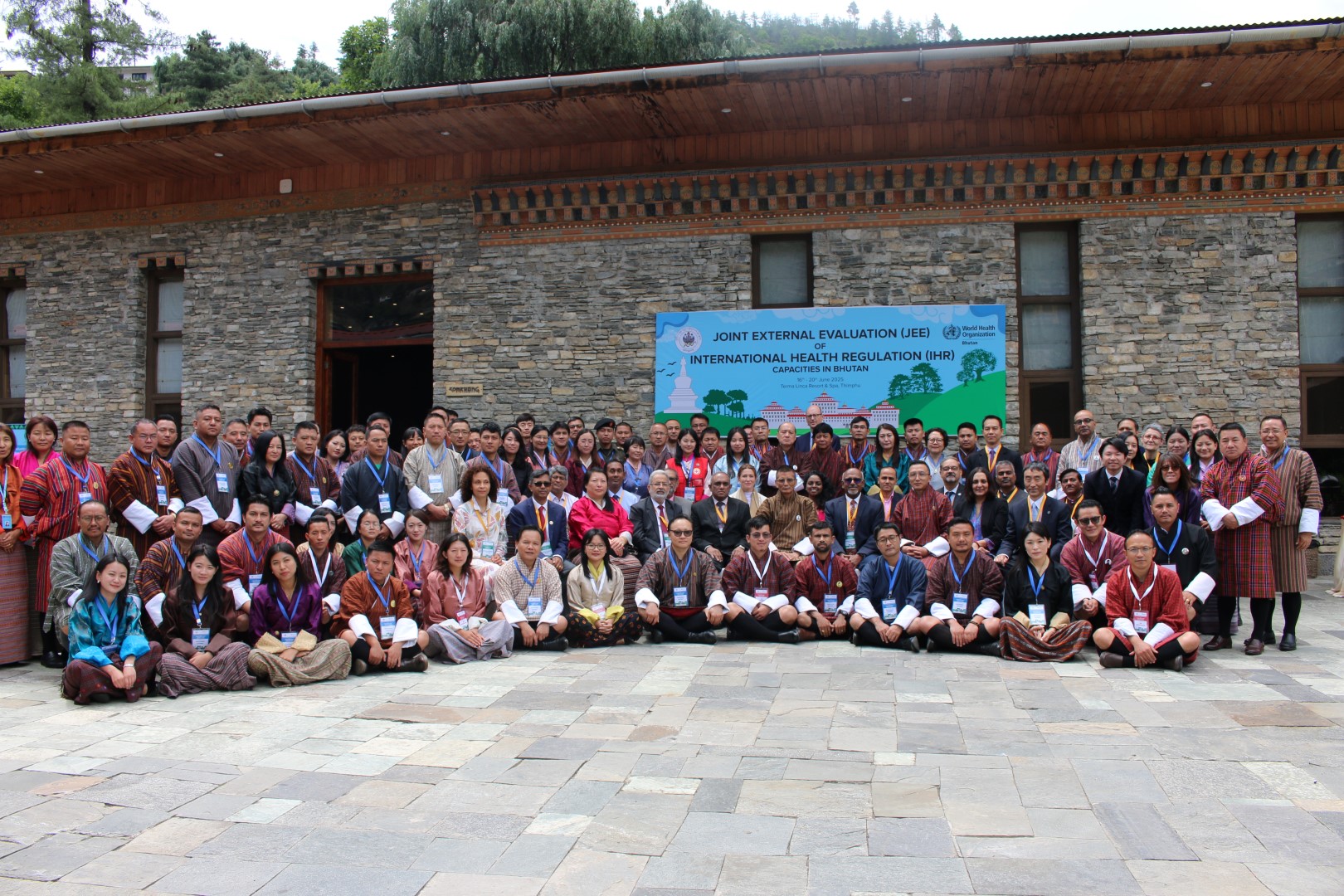
Figure 1(Sitting, from left, Officiating President KGUMSB Dr Kuenzang Chhezom, Dr Mahendra Arnold, Team Lead, IHR- JEE Mission, Hon’ble Dasho Secretary, Mr Pemba Wangchuk, Ministry of Health, Dr Reuben Samuel, Team Co-Lead JEE Mission, Officiating President Director Dr Kuenzang Wangdi, Department of Clinical Services, Director General Mr Karma Geley, Department of Local Governance & Disaster Management, Ms Gyem Bidha, Director of Bhutan Food and Drug Authority(BFDA), Mr Tshedar, Officiating Director of Department of Public Health, Asian Development Bank (ADB), Japan Intrnational Cooperation Agency (JICA), Save the Children and other development partners, Senior officials and colleagues from all government agencies, Royal Bhutan Police, Royal Bhutan Army, De-suung and Bhutan Red Cross Society (BRCS) along with the JEE External Experts team representing Robert Koch Institute (RKI), WHO Country Offices (India and Nepal), Asian Development Bank (ADB), Food and Drug Authority (FDA) Indonesia, World Organisation for Animal Health (WOAH), India’s National Institute of Disaster Management, Ministries of Health (Sri Lanka, India, Nepal), and the Office of Atoms for Peace, Thailand.
The Kingdom of Bhutan has successfully initiated its second Joint External Evaluation (JEE) of International Health Regulations (IHR) core capacities, marking a significant stride in regional and global health security. This JEE-IHR utilizes the newly developed electronic JEE (eJEE) platform, aimed at streamlining, standardizing, and enhancing the efficiency of the reporting process. Conducted from June 16 to 20, 2025, this joint evaluation covered 19 Technical Areas related to IHR, with Priority Actions recommended for each to bolster national health security and the resilience of the health system for emergencies.
As of June 2025, the Kingdom of Bhutan became the sixth country in the South-East Asia Region and the 90th globally to undertake a second round of the JEE-IHR, following its first evaluation in 2017. The findings from this latest assessment will directly inform the development of a new National Action Plan for Health Security (NAPHS). This country-owned, multi-year plan, comprising strategic and operational components, is designed to accelerate interventions that sustain and strengthen IHR core capacities. Like the JEE-IHR, the national action plan for health security (NAPHS) is founded on a One Health, all-hazards, whole-of-government, and whole-of-societal approach.
During the mission's opening session, the Honorable Dasho Mr. Pemba Wangchuk, Health Secretary of Bhutan, acknowledged WHO's ongoing support. He stated, "Today marks a significant milestone in our collective journey to strengthen health security and ensure that our systems are prepared to detect, prevent, and respond to public health threats in a timely and coordinated manner." He added that the JEE-IHR is more than just an assessment; it is a collaborative process of reflection, dialogue, and mutual learning.
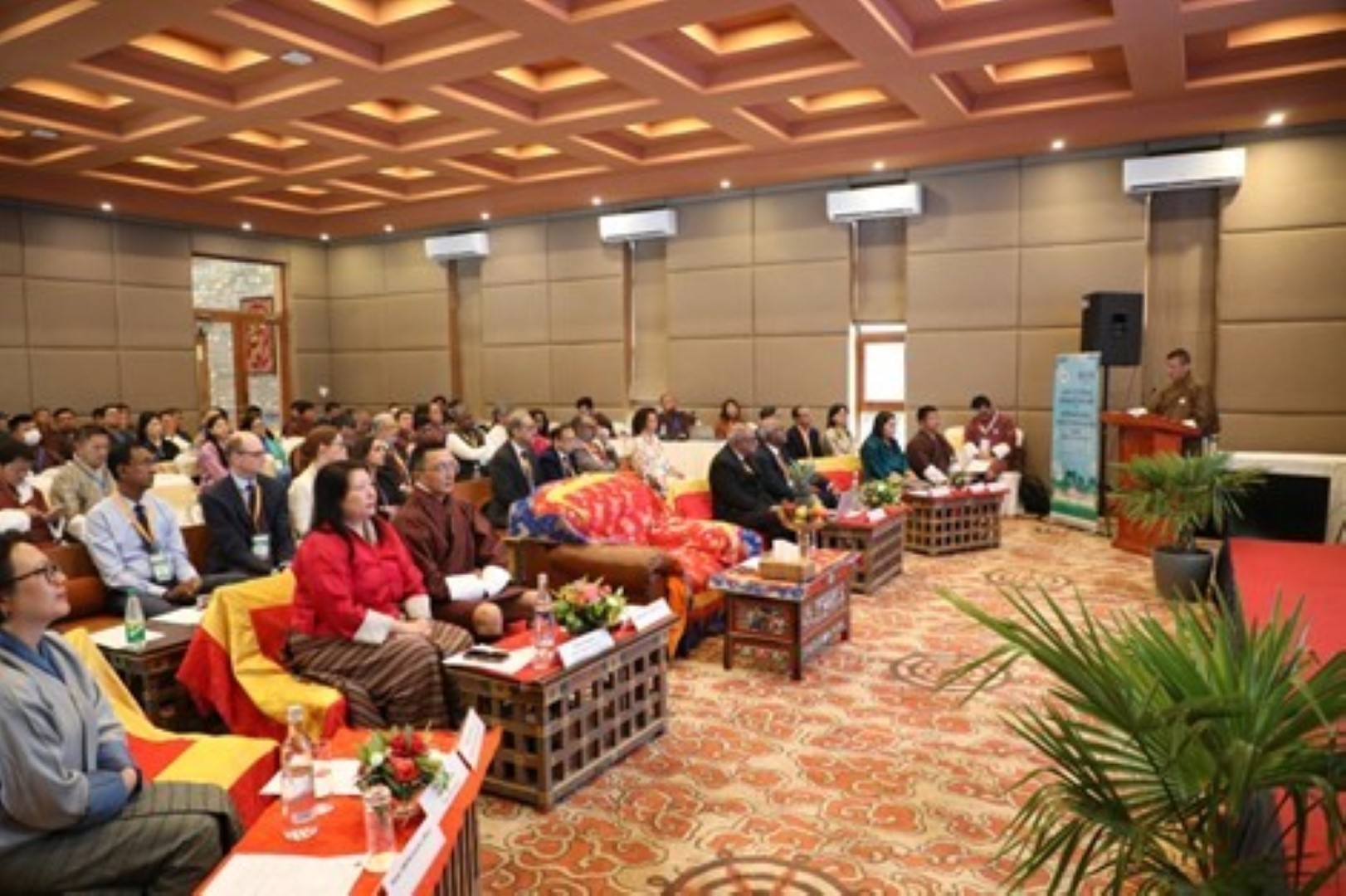
Figure 2: Honorable Health Secretary Dasho Mr Pemba Wangchuk, Health Secretary of Bhutan presenting his opening address inaugurating the 2nd JEE-IHR Bhutan
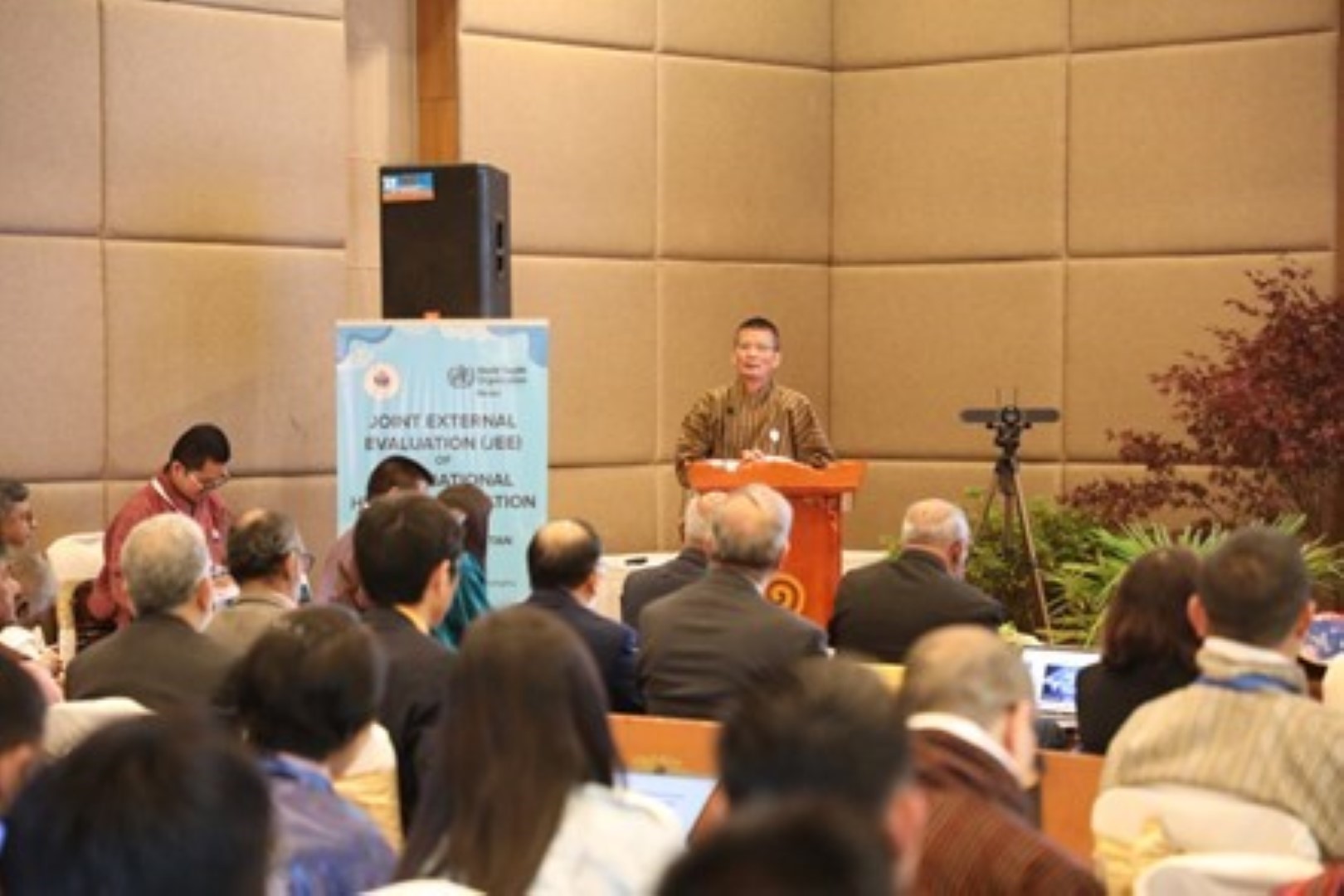
Figure 3: Honorable Health Secretary Dasho Mr Pemba Wangchuk, Health Secretary of Bhutan addressing the delegation during the opening session on 16th June at Thimphu, Bhutan
The Health Secretary further articulated, "Since our first JEE in 2017, we have come a long way. With valuable lessons from the COVID-19 pandemic and other emergencies, we have made targeted investments in emergency preparedness, surveillance, laboratory capacity, workforce development, and risk communication." Notably, the ongoing Pandemic Fund Project has spurred multi-sectoral efforts to bolster core capacities, while the Fleming Fund Project has been instrumental in strengthening laboratory systems and antimicrobial resistance (AMR) surveillance under a One Health approach. Despite these advancements, the Secretary acknowledged persistent challenges in human resources, infrastructure, and cross-sectoral coordination. He underscored the mission's "invaluable" insights and expertise, urging national experts to engage openly and critically with the external evaluation team to drive continuous improvement in Bhutan's health security framework.
Dr. Bhupinder Kaur, WHO Representative to the Kingdom of Bhutan, joining virtually, remarked, "This JEE is particularly timely, as it will also inform ongoing efforts to mobilize external resources, including through the Pandemic Fund, which places significant value on the findings of JEEs and their use in guiding investment. As Bhutan enters the second year of implementing activities supported by the Pandemic Fund’s first round, this evaluation offers a strong foundation for aligning technical priorities and donor support. Looking ahead, I would like to take this opportunity to encourage the Ministry of Health to use the outcomes of the JEE to develop or update the National Action Plan for Health Security (NAPHS)."
Dr. Reuben Samuel, Programme Area Manager—Country Health Emergency Preparedness and IHR, Health Emergencies Programme, WHO South-East Asia Regional Office, and co-lead of the external JEE team speaking on behalf of the JEE-External Experts team led by Dr Mahendra Arnold; and the WHO HQ and Regional office, emphasized, "Bhutan continues to show high-level political commitment to health security and resilience. The government's agenda is clearly evident: to build a robust and resilient health system that would be prepared for and ready to respond to contain and withstand future public health emergencies and pandemics. Bhutan has successfully secured USD 4.6 million from the Pandemic Fund to strengthen emergency preparedness and response capacities. This investment focuses on human resources, laboratory systems, and surveillance, with a strong One Health approach."
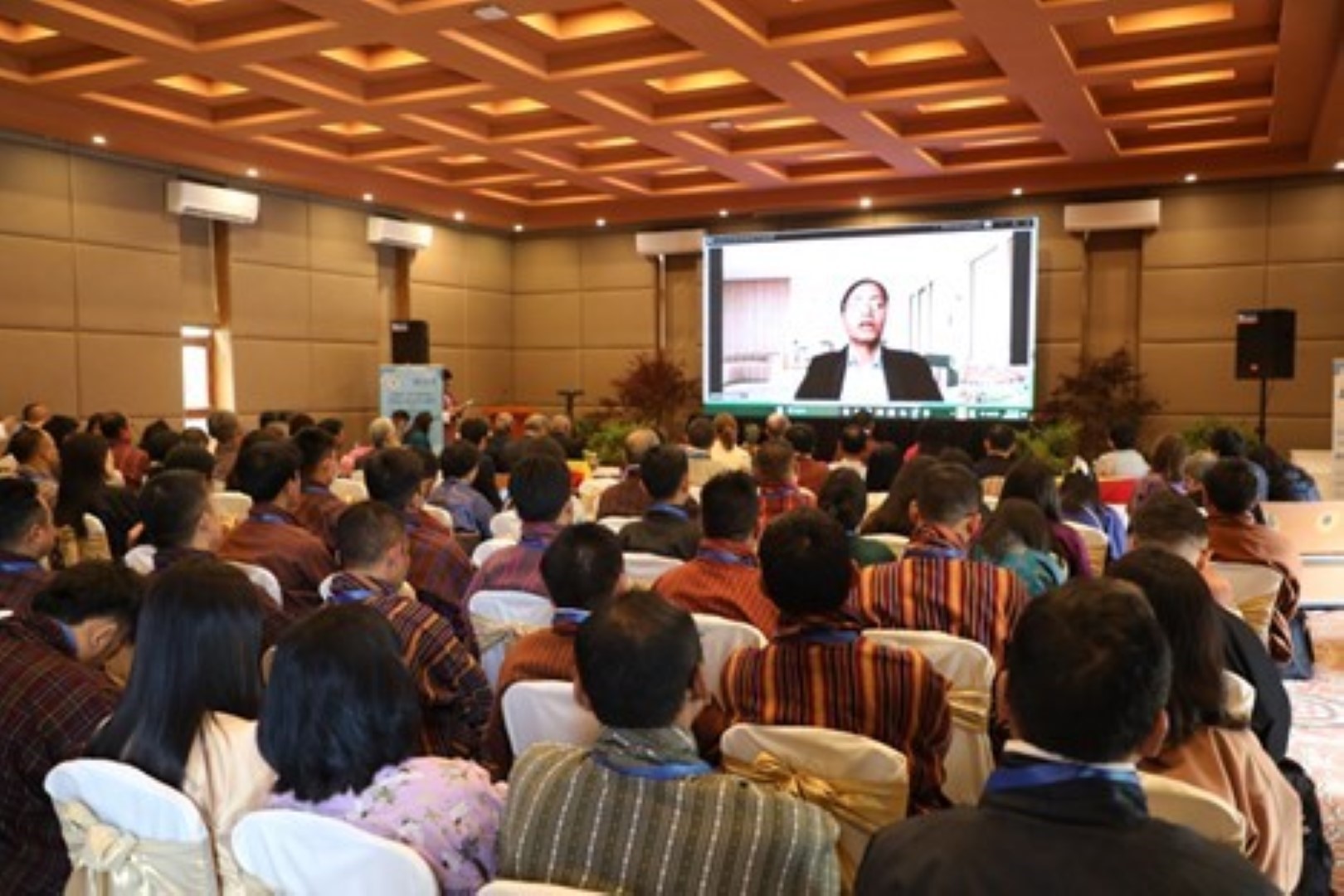
Figure 4: Dr Bhupinder Kaur, WHO Representative to Bhutan delivering the opening remarks to delegates during the opening session
The Kingdom of Bhutan, despite its relatively small size, demonstrated an exemplary COVID-19 response to the world, leveraging whole-of-government and whole-of-society engagement. This success was underpinned by strong political leadership, community trust, and rapid coordinated action that was contextualized and played to the country's strengths, prioritizing the lives and well-being of its citizens in line with the ethos of Gross National Happiness.
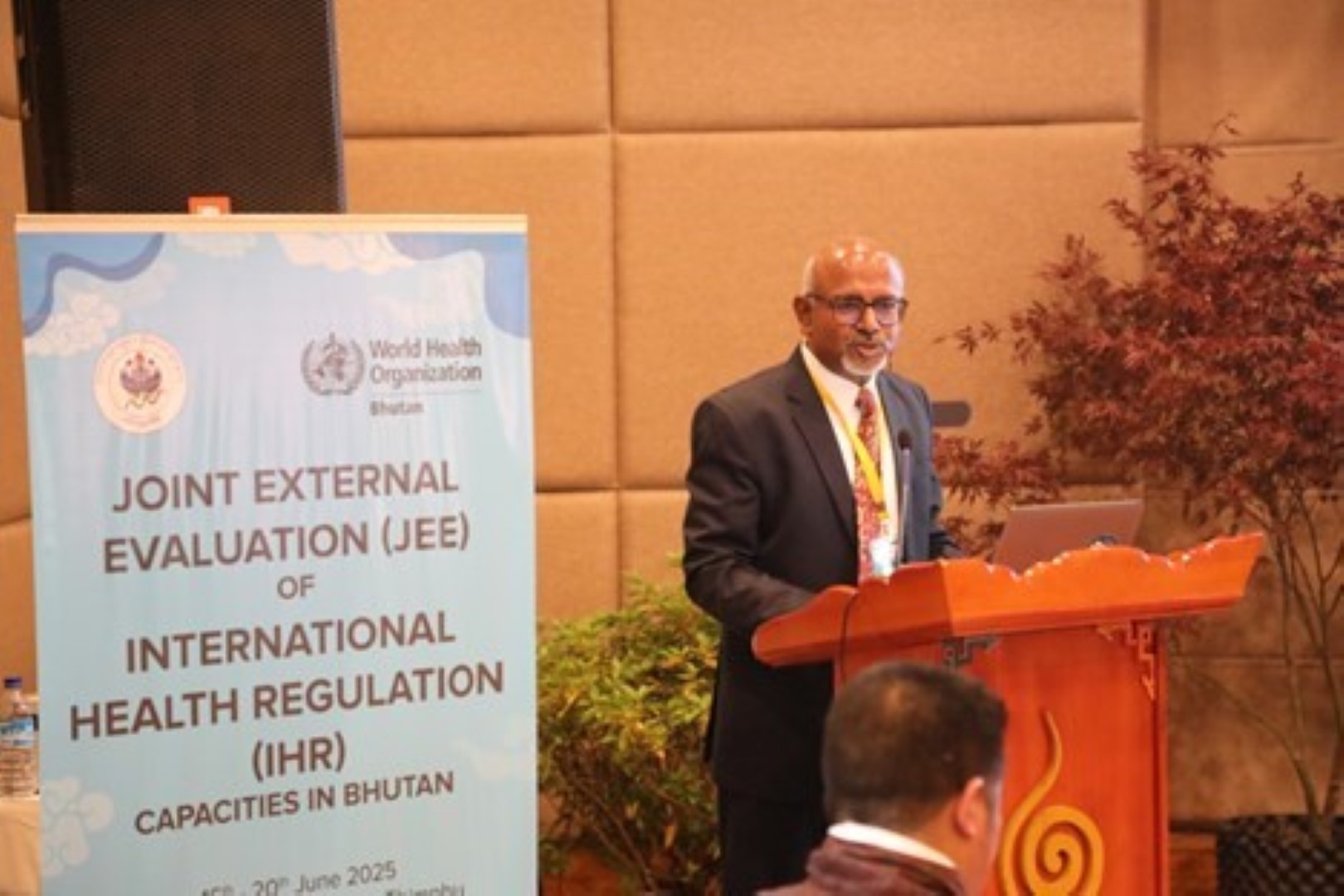
Figure 4: Dr. Reuben Samuel, Programme Area Manager—Country Health Emergency Preparedness and IHR, Health Emergencies Programme, WHO South-East Asia Regional Office, and co-lead of the external JEE team speaking on behalf of the JEE-External Experts team led by Dr Mahendra Arnold; and the WHO HQ and Regional office
Regional solidarity is crucial to ensure that countries can access capacities they do not possess, as a right, through the prioritized implementation of regional initiatives outlined in strategic roadmaps and action frameworks. Following this assessment, the focus needs to be on the systematic implementation of recommendations through the NAPHS for improved health security. This consensus-based process ensures full agreement on all findings, including capacity level scores, recommended priority actions, and the final report. Country counterparts, led by government representatives, are deeply involved and have full ownership of the process and its results. Each technical area receives a score ranging from 1 to 5, indicating the level of capacity achieved, along with 3 to 5 recommended priority actions to advance to the next or a more sustainable level of capacity.
The mission commenced on Monday, June 16th, with an opening session, followed by technical area presentations. A series of field visits were conducted on Day 2 (June 17th) at various locations, including Paro International Airport, Paro District Hospital, Drugyal Primary Health Centre (PHC), Jigme Dorji Wangchuck National Referral Hospital, the 112 Health Help Centre (HHC), Motithang Thromdey Health Centre, Gidakom Hospital, Royal Center for Disease Control, National Center for Animal Health, and the National Food Testing Laboratory, BFDA. These visits were followed by three days of plenary sessions on each of the 19 technical areas, during which focal points from the Ministries, alongside external evaluators from the JEE team, deliberated on Bhutan's IHR core capacities.
The JEE mission to the Kingdom of Bhutan was conducted by a team of 21 external experts representing three WHO regions and nine international organizations, including the Robert Koch Institute (RKI), Asian Development Bank (ADB), Indonesian Association for Food Safety Professionnel, World Organisation for Animal Health (WOAH), National Institute of Disaster Management of India, Ministries of Health (Sri Lanka, India, Nepal), and the Office of Atoms for Peace, Thailand.
